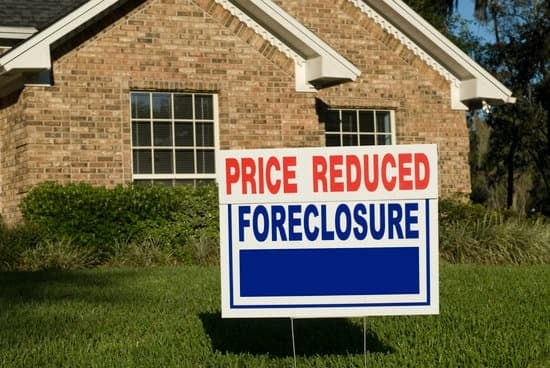
Executive Summary
By Sheila Viesca, Ph.D.
With insights from John Riad, CEO of HousingInteractive
During a real estate crisis, selling a home is incredibly difficult. However, by understanding the market and its key drivers, you can navigate these challenges effectively. The housing market is a powerful economic force that directly impacts your personal wealth. A crisis disrupts this market, leading to lower home prices and fewer buyers.
Key Factors Influencing the Real Estate Market
Several macroeconomic and policy-driven factors dictate the behavior of the real estate market. Understanding these elements is crucial for anticipating shifts and adjusting selling strategies accordingly.
1. Interest Rates
Mortgage interest rates are a primary driver of buyer demand.
- Lower Rates: Stimulate the market by making borrowing more affordable, increasing the pool of potential buyers. Lower mortgage rates reduce monthly payments for many homeowners, making homeownership more accessible and attractive. This often leads to more buyers entering the market, which can help sellers remain competitive even during challenging economic conditions.
- Higher Rates: Can cool down the market by making home loans more expensive, thereby reducing buyer interest and purchasing power. When interest rates rise, the cost of financing increases, which may discourage many buyers from entering the market or force them to lower their budget. This can result in decreased demand, increased inventory, and downward pressure on real estate prices.
2. Economic Conditions
Broader economic health directly impacts housing affordability and demand.
- Employment Levels: High employment rates and job security increase consumer confidence and the ability to secure mortgages. Many homeowners base their decision to buy or sell on their job stability and cash flow, so a strong economy with low unemployment typically supports a more active real estate market.
- Consumer Confidence: When consumers feel secure about their financial future, they are more likely to make large-scale purchases like homes. Conversely, economic uncertainty or recession can lead to cautious behavior, with fewer buyers willing to commit to long-term financial obligations.
3. Population Growth
Demographic shifts and population growth are fundamental drivers of housing demand.
- Growing Populations typically lead to increased demand for housing, which can push real estate prices upward. Areas experiencing population growth often see increased construction projects to meet the housing needs of many buyers.
- Urbanization Trends: The movement of people into urban centers can create localized housing shortages and price inflation. This trend can have a major impact on specific real estate markets, making some areas more competitive than others.
4. Government Policies
Regulatory and financial policies can significantly alter market dynamics.
- Tax Incentives: Tax credits for first-time homebuyers or real estate investors can stimulate demand. These incentives often encourage many investors and homeowners to enter the market, increasing competition.
- Subsidies and Mortgage Guarantees: Programs like Pag-IBIG Loans can make homeownership more accessible, especially during economic downturns. Lower mortgage rates offered through such programs can attract more buyers and help stabilize housing markets.
- Construction Policies: Regulations on new construction can affect housing supply, influencing market prices. Restrictive policies may limit construction projects, contributing to increased inventory shortages, while more lenient policies can lead to an expansion phase with more homes available for sale.
The Real Estate Cycle Phases
The real estate market operates in a cyclical pattern with four distinct phases. Recognizing which phase the market is in helps sellers strategically time their sale to maximize returns.
| Phase | Characteristics | Seller’s Strategic Implications |
| Recovery | – Property values stabilize. – Gradual increase in market activity. – Inventory levels start to decrease. | – A good time to prepare the property for sale. – Potential for a slow but steady sale. |
| Expansion | – High buyer demand and low inventory. – Home values and prices rise rapidly. – Multiple offers and bidding wars are common. | – Optimal time to sell. – Sellers have strong negotiation power. – Can list at or above asking price. |
| Hyper Supply | – New construction or an influx of listings leads to excess inventory. – Buyer’s market with more choices. – Prices begin to plateau or slightly decline. | – Must price competitively. – Focus on enhancing property appeal to stand out. – Longer time on the market is likely. |
| Recession | – Decreased buyer demand and lower sales. – Significant drop in housing prices. – High inventory and foreclosure rates. | – A challenging time to sell. – Consider alternative options (e.g., renting). – Must be prepared for price reductions. |
The real estate market operates in a cyclical pattern with four distinct phases. Recognizing which phase the market is in helps sellers strategically time their sale to maximize returns.
— John Riad, HousingInteractive Founder
Navigating a Market Crisis
A real estate crisis, often a component of a broader economic recession, presents significant challenges. Sellers must be prepared for a difficult selling environment characterized by declining home values and a scarcity of qualified buyers.
1. Impact of Market Conditions
Market conditions, including a sudden market crash, directly influence property values and the speed of sales. A market crash can lead to:
- Sudden Drop in Housing Prices: The value of a property can decrease significantly in a short period.
- Surge in Available Inventory: Fewer buyers and more sellers lead to an oversupply of homes on the market.
- Financial Institutions’ Role: Banks and lenders often tighten lending standards, making it harder for buyers to secure mortgages, which further reduces the pool of potential buyers.
- Buyer Psychology: Buyers become more cautious, prioritizing job security and the ability to meet mortgage payments before making a purchase.
2. Mitigating Risks and Strategic Adjustments
Successfully navigating a crisis requires proactive risk mitigation and strategic adaptation.
- Competitive Pricing: Pricing a home accurately and competitively is no longer just a strategy—it’s a necessity. Overpricing a home in a down market can lead to a prolonged listing and multiple price drops.
- Enhancing Marketability: Since there are fewer buyers, a home must stand out from the competition.
- Staging: Professionally staging a home can help potential buyers envision themselves living in the space.
- Repairs and Upgrades: Investing in minor repairs and curb appeal can attract buyers.
- Professional Photography: High-quality photos and virtual tours are essential for capturing online interest.
- Staying Informed: Sellers must stay abreast of current interest rates, local market trends, and economic developments. This information helps in making informed decisions about pricing and marketing.
Why Professional Help is Crucial
A crisis highlights the limitations of a “for sale by owner” approach. The complexities of a down market demand professional expertise to navigate successfully. Below are key areas where professional real estate agents provide critical assistance.
1. Navigating Lower Appraisals
In a down market, appraisals can come in lower than the agreed-upon price, creating challenges in closing the sale.
| Challenge | Agent’s Role |
|---|---|
| Low Appraisal Value | Negotiate with the buyer to adjust the price or request a reconsideration of the appraisal. |
| Financing Issues | Work with lenders and buyers to explore alternative financing solutions or loan programs. |
| Contingency Management | Advise on handling appraisal contingencies to avoid deal cancellations or renegotiations. |
2. Dealing with Fewer Showings
Lower buyer traffic requires targeted marketing strategies to generate interest and keep the property visible.
| Strategy | Description |
|---|---|
| Enhanced Online Marketing | Use professional photography, virtual tours, and social media campaigns to attract buyers. |
| Open Houses and Events | Organize safe, well-publicized open houses or virtual events to showcase the property. |
| Targeted Outreach | Leverage the agent’s network to reach qualified buyers and other realtors. |
3. Screening Potential Buyers
In a market with fewer buyers, ensuring that interested parties are qualified is vital to avoid wasted time and delays.
| Screening Aspect | Agent’s Role |
|---|---|
| Financial Qualification | Verify buyer pre-approval and financial capacity to secure a mortgage or pay cash. |
| Seriousness Assessment | Gauge buyer motivation and readiness to proceed with the purchase. |
| Background Checks | Coordinate with lenders and agents to confirm buyer credibility and reliability. |
4. Additional Benefits of Professional Assistance
Beyond these specific challenges, agents provide ongoing support that helps sellers remain competitive and informed.
- Market Insight: Agents provide up-to-date analysis of market trends and economic conditions, helping sellers make informed decisions.
- Negotiation Expertise: Skilled negotiation can maximize the sale price and favorable terms even in a crisis.
- Transaction Management: Agents handle complex paperwork, deadlines, and legal requirements, reducing seller stress.
- Emotional Support: Selling during a crisis can be emotionally taxing; agents offer objective advice and reassurance.
By leveraging these professional services, sellers can better navigate the uncertainties of a real estate crisis and improve their chances of a successful sale.
The complexities of a down market demand professional expertise to navigate successfully.
— John Riad, HousingInteractive Founder
The Role of the Real Estate Agent
In a challenging market, having a knowledgeable and experienced real estate agent from HousingInteractive is invaluable for any seller. Their expertise and personalized guidance help sellers successfully navigate the complexities of a real estate crisis. With a deep understanding of market dynamics, they provide the clarity and support needed to make informed decisions during uncertain times.
1. Precise Property Valuation:
Agents leverage comparable sales data and thorough market analysis to set a realistic and competitive price for your property, avoiding the pitfalls of overpricing in a sluggish market.
2. Customized Selling Strategies:
Agents craft tailored selling plans that reflect current market conditions, which may include:
- Targeted marketing aimed at specific buyer demographics.
- Emphasizing the unique features and benefits of the property.
- Skilled negotiation with buyers regarding price, contingencies, and closing timelines.
3. Extensive Buyer Network Access
Established agents at HousingInteractive have connections to a broad network of potential buyers and other realtors, enhancing the property’s visibility beyond standard listings.
4. Expert Guidance on Documentation and Procedures
Real estate transactions involve complex paperwork and legal requirements. Agents ensure all documents are properly prepared and submitted to prevent delays and legal complications.
5. Emotional Support and Objective Guidance
Selling a home during a crisis can be a stressful experience. Agents provide balanced advice and manage expectations, helping sellers avoid emotional decisions that could negatively impact the sale.
In a challenging market, having a knowledgeable and experienced real estate agent from HousingInteractive is invaluable for any seller.
— John Riad, HousingInteractive Founder
Alternative Strategies and Investment Opportunities
When selling is not a viable option or if the market is too unfavorable, sellers can explore other strategies.
A. Alternative Options to Selling
Sellers should weigh their financial situation and long-term goals before deciding on the best course of action.
1. Renting the Property:
- Pros: Generates cash flow, allows the owner to hold onto the asset until the market improves, and can potentially provide tax benefits.
- Cons: Requires becoming a landlord, which involves property management and maintenance responsibilities.
2. Renovating and Upgrading:
- Pros: Can increase the property’s value, making it more marketable when the market recovers.
- Cons: Requires significant capital investment and no guaranteed return.
3. Refinancing:
- Pros: Allows the seller to secure a lower interest rate, thereby reducing monthly mortgage payments and making it easier to retain the property.
- Cons: Not always an option if the property’s value has fallen significantly, as the loan-to-value ratio might be unfavorable.
B. Real Estate Investment Strategies During a Downturn
A crisis can also present opportunities for savvy real estate investors.
- Buying and Holding: Investors can acquire properties at a reduced price, hold them until the market recovers, and sell for a significant profit.
- Rental Properties: Purchasing homes during a crisis can provide a steady source of income through rental properties, especially if demand for rentals increases due to stricter lending standards.
- “Fix and Flip” (with Caution): While risky in a down market, buying properties at a low price, renovating them, and selling them quickly can still be profitable if done strategically.
Evaluating Alternative Options
| Option | Financial Implication | Risks | Best for Sellers Who… |
| Renting | – Positive cash flow potential. – Builds equity over time. | – Landlord responsibilities. – Vacancies and property damage risks. | – Are not under financial pressure to sell. – Want to capitalize on future market recovery. |
| Renovating | – Capital outlay for improvements. – Potential for significant ROI. | – Market value might not increase proportionally. – No guaranteed quick sale. | – Have the financial resources to invest. – Are confident in their ability to improve the property’s value. |
| Waiting | – No immediate cash from a sale. – Continued mortgage payments. | – The market might continue to decline. – Opportunity cost of not selling. | – Can comfortably afford to wait. – Believe the market will recover soon. |
By understanding the complexities of the market, working with a professional real estate agent, and considering all available options, sellers can navigate a real estate crisis and protect their investment.
Let Us Help
Ready to sell your property, even in a challenging market? Let HousingInteractive, the Philippines’ first property portal, guide you. We deliver comprehensive property solutions and expert advice to help you get the best value for your home. Contact us today to navigate your sale with confidence and secure your investment.

























